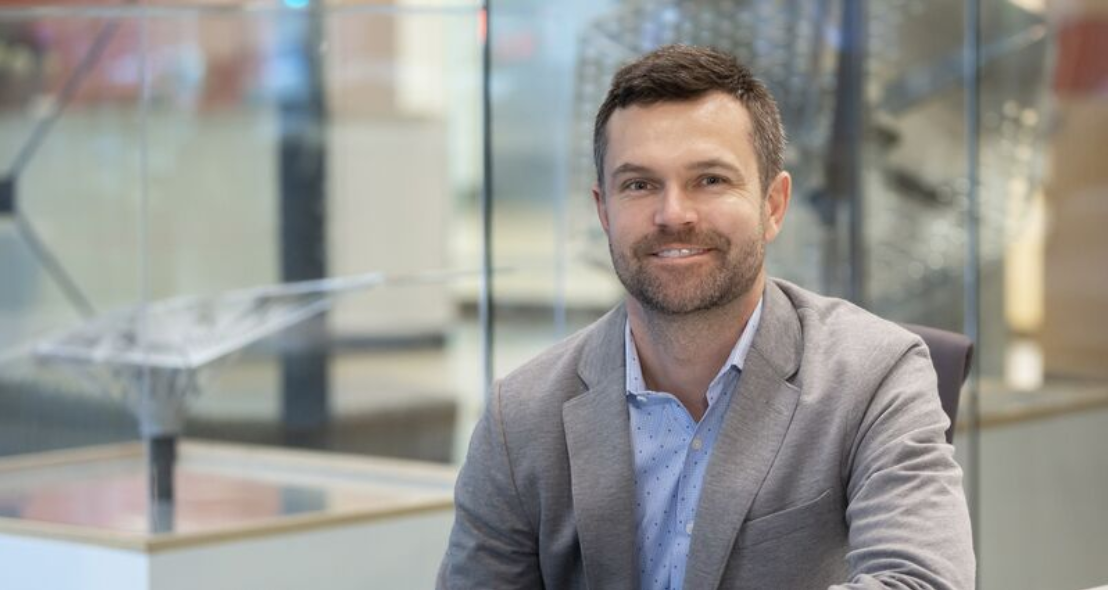In preparation for the 2020 Conscious Cities Festival Denver event, Shaping Health, Conscious Denver will be featuring the work of our event speakers to share how they are impacting change in Denver and beyond. In this segment, we are excited to introduce Casey Lindberg, PhD, Senior Design Researcher at HKS, Inc.
Architects understand the risks that the built environment may pose to people and take measures in the design process to minimize those risks, whether through design decisions or intentional monitoring of possible deleterious conditions. In his work with HKS, Casey upends this standard and asks what are the beneficial qualities of an environment to increase performance and support health and wellbeing. Casey and his team of design researchers answer these questions through rigorous testing and analysis, often utilizing HKS employees as test-subjects. HKS created “Living Labs,” an in-house prototype to study the relationships of human-environment interactions.
The sudden occurrence of Covid19 called for a nimble refocusing of attention and became an unexpected opportunity to rethink the future of the office landscape. When HKS sent their employees home on March 13th due to Covid19, Casey and his team got straight to work trying to understand the unprecedented shift from office to home-based work for the company’s thirteen hundred employees. HKS associates were asked to complete a weekly survey about their home work environment, performance, health and wellbeing, preferences for a flexible work experience, and social connections. This extensive data set has uncovered some informative insights into the needs and preferences of HKS employees, and offers potential direction for the broader workforce as companies are trying to find innovative and flexible working conditions for their employees in this era of Covid19, and beyond.
Several important takeaways have been uncovered through this research. People want to have control over their workspaces along with flexibility with regards to working location, communication tools, and working hours. While global connectivity remains an important part of conducting business, close social interaction has become invaluable. Casey described an additional indication of the research: the need for thresholds. Where once people had distinct spaces for work and home, they are now often one and the same. While people used to have some form of commute to their place of employment, many people now just change tabs on their computer, or remove the breakfast dishes off the table before beginning their workday. This lack of boundaries increases the risk of work life impeding on home life. Casey recommends that thresholds should be implemented in workspaces to intentionally design both one’s time and space for work and home experiences.
Overall the surveys have delineated a fairly smooth transition to working from home for many, yet there are several compounding factors such as age, demographics, type of dwelling, and number of people in the home. Home based workspaces are not equitable, with some employees working in a separate home office and others carving out space at a kitchen table or shared desk. Understanding the challenges and successes of working from home is important to the future of office design. While it may be reactionary to suggest that office buildings will become extinct, it is more likely that successful office spaces of the future will address workspaces, be they at home or in an office building, as a complementary ecosystem. Offices will need to offer employees that which they lack in their home-based workspaces, and vice-versa. Before the pandemic, office buildings served as containers for work, but as a result of the pandemic, the office ecosystem now includes a diverse range of spaces including home, coffee shop, office, local park bench, patch of grass, or balcony. Companies have a lot to learn from the current reconfiguring of the office ecosystem. Casey and his team are leading the way through analyzing this transformation and offering thoughtful direction for a more innovative, flexible, and human-centered office landscape.
Join Casey on October 22, 2020 to learn more about how he and others are Shaping Health in Denver!

